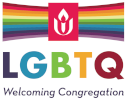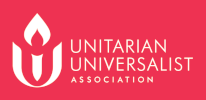Reading, from Mark 1:32-35
“…Jesus entered the house of Simon and Andrew, with James and John. Now Simon’s mother-in-law lay sick with a fever,…and he came and took her by the hand and lifted her up, and the fever left her; …that evening at sundown, they brought to him all who were sick….and the whole city was gathered together about the door. And he healed many who were sick with various diseases….”
While Jesus healed, James spoke with the sick about their means of payment. Dost thou have Medicaid, Medicare, SCHIP, or private insurance, he asked. And, if you have Medicare, do you have gap insurance?
To those who had none of these insurances, he asked, Dost thou have a credit card, or cash? Wouldst thou sign over thy house to us for services rendered?
To those who had no credit card or cash, who were sorely ill with fever, he told to go to the third house down the street, the home of Mary and Martha, who would treat everyone regardless of ability to pay. The others he asked to step aside.
Seeing the line of ill people with no insurance and no credit cards growing to be one out of every 5 people, he inquired of the owner’s of the house if they would be willing to pay for the treatment of the ill. Simon and Andrew, whose house it was, went out into the crowd and asked for donations of money to pay for those who could not pay. Simon and Andrew returned with money, but too little to cover the costs, which had been rising at 11% a year for several years. Simon shook his head and said, How can we lay this burden on the backs of this town’s non-profits?
Thus it was that Simon and Andrew, James and John, put their heads together, and asked one another, ‘Should we tell Jesus that they cannot pay for services rendered? No, said John, he would keep on treating them. We must come up with a new solution. Then James, inquired of the other disciples, Could we not charge an extra 15% from everyone who has third party insurance, and that would cover those who cannot pay? Brilliant, said Simon! Health insurance may be unfair, inefficient and cost twice as much as in other countries, but we can continue to pretend that free-market health insurance works. Andrew inquired of them, But isn’t this like taking from Peter to pay Paul? And they marveled at his wisdom.
And in the morning, a great while before day, Jesus rose and went out to a lonely place and prayed for an equitable system of health insurance that would:
- Be universal
- Be compulsory
- Be affordable even for those with pre-existing conditions or medically suspect family histories”
(adapted from Laurence J. Kotlikoff, The Healthcare Fix)
And Simon and those who were with him followed him, and said to him, “Everyone is searching for you.
Jesus said to them, ‘We must travel to Jerusalem to lobby for universal health insurance.”
Following the reading, the sermon
Healthcare and Jesus
Last Sunday, Jill Schaffer-Hammond offered a candle of social justice witness to the need for healthcare insurance in New Hampshire. Postcards were offered at a table in the parish hall if you wished to send a message of encouragement to state and national legislators.
All I can offer are my own thoughts and experiences on this issue, and hope that we will each find a way to take a next step for encouraging our leaders to find a fair solution to healthcare insurance.
I assume that this is important to many of you, because in my first two weeks here, I found that about one in five people either had no medical insurance, were trying to find more affordable insurance, do not see doctors because of incredibly high deductibles, had to forestall retirement or medical treatment, or were anxious about what Medicare would and would not cover. I would have to be deaf to not have heard your stories. This is in a community that claims to have a lower percentage of medically uninsured.
I thoroughly enjoyed the Wellness fair yesterday. I ran in the road race, I helped the Episcopal minister push a shopping cart in the Rotary Club parade. Healthcare staff provided screenings for cholesterol, blood pressure, body fat, hearing, and oral health. But if I tested for high cholesterol, high blood pressure, obesity, and diseased gums, I would be unable to treat any of these conditions unless I had adequate health insurance.
The consensus that is building toward enacting some kind of national healthcare insurance seems to have a good chance of succeeding in two years.
If I could start from scratch, I would shape a healthcare insurance system along the lines of Canada or England. From a patient’s perspective, my family and I received excellent healthcare when we lived in England in 1992. I know that many people do not favor such a system. If I lived and worked in England, 37% of my salary would go toward taxes and medical insurance. In Canada, 31% of my salary would go toward taxes and medical insurance. Last year, 32% of my salary went to taxes and medical insurance. More than in Canada, but a little less than England.
In the United States, the state and federal governments provide medical insurance for tens of millions of people through employee plans, and Medicaid and Medicare. The remainder are part of the free market health insurance business, and 47 million are uninsured.
We have this multiple payer system because following World War II, the economic boom in America allowed businesses to provide 89% of worker’s benefits, including medical insurance. In the 1970’s, while European governments were beginning to take on these insurance responsibilities, American businesses were beginning to shed their responsibilities. Today, only 69% of America’s companies cover employee medical insurance, and that figure is dropping by 10% every 5 years. The consequence is 47 million people without health insurance, today, and more every year. The United States is one flu epidemic away from medical and financial catastrophe.
In 1971, Unitarian Universalists saw this trend, debated how our religious tradition should respond….and then passed a resolution calling upon the federal government to sponsor a health insurance plan that would be universal and equitable. This resolution asked for these benefits:
- Adequate pre-natal, hospital and post-natal care be provided to every mother and child.
- Family planning, birth control, abortion services and information be made available to everyone wanting them, free of charge, without regard to age or marital status.
- Pediatric care, inclusive of all immunizations.
- Mandatory physical examinations for children.
- Adequate healthcare for the physical, mental, and social well-being of the elderly, including provision for custodial and terminal care.
- All medical, psychiatric, psychological, dental, opthamalic and other care and devices be provided.
- Medical research for the purpose of extending the life span of men.
- Outpatient family health clinics in rural and urban areas.
- Expand programs of medical education.
Unitarian Universalists addressed universal healthcare insurance again in 1979, and in 1992, passing resolutions of support.
Other religious denominations came to the same conclusions. In 1994, thirty-two faith groups joined to launch a health care reform campaign based upon the ethical principles practiced by Jesus. This included the American Baptists, Presbyterians, Methodists, and Episcopalians.
The argument has been made that we have universal healthcare, but we do not yet have universal healthcare insurance. A kind of tipping point has been reached on this issue that is leading to individual states such as Massachusetts and California coming up with plans, with other states close behind. Other recommendations call for a single payer plan, tax breaks, expanding the Medicaid or Medicare Systems, expanding the government insurance plans to cover the uninsured. Still others recommend insurance vouchers, and other plans.
Our Unitarian Universalist ethic affirms that “comprehensive healthcare insurance is a basic human right. In a 1992 resolution, congregational delegates to the UUA General Assembly urged UU congregations and individual UU’s to support adoption of a national, publicly funded comprehensive system of universal healthcare insurance.”
The question in 2007 is when will Americans sit down to do the math, weigh the social and financial consequences, and seek ethical guidance from their faith traditions on this issue. In the meantime, blessings upon the healthcare providers, hospitals and clinics….and blessings upon the leaders who have a vision for a healthcare system that helps everyone.
I close with a footnote of encouragement from the Saddleback Evangelical Chirstian Church. Kay Warren, the wife of evangelical pastor Rick Warren of Saddleback Church, said, “Jesus never asked people how they got sick. He said, ‘How can I help you?’ That should be our first question.” The Warren’s recently invited Barack Obama to their church. The Warren’s and Obama support each other’s efforts to end the scourge of AIDS in Africa. Conservatives objected, because Obama is pro-choice. Bless the Warren’s. They are more interested in Americans working together across faith traditions, in order to end a disease that has infected 40 million, killed 25 million around the world, and has orphaned 12 million children in Africa. They are more interested in the ethics of Jesus, not ideology.
Jesus never wrote a position paper on AIDS or on national healthcare insurance, but I think he would be in favor of people joining together to find a cure for AIDS. I think he would favor universal national healthcare insurance as a logical extension of his ministry.


